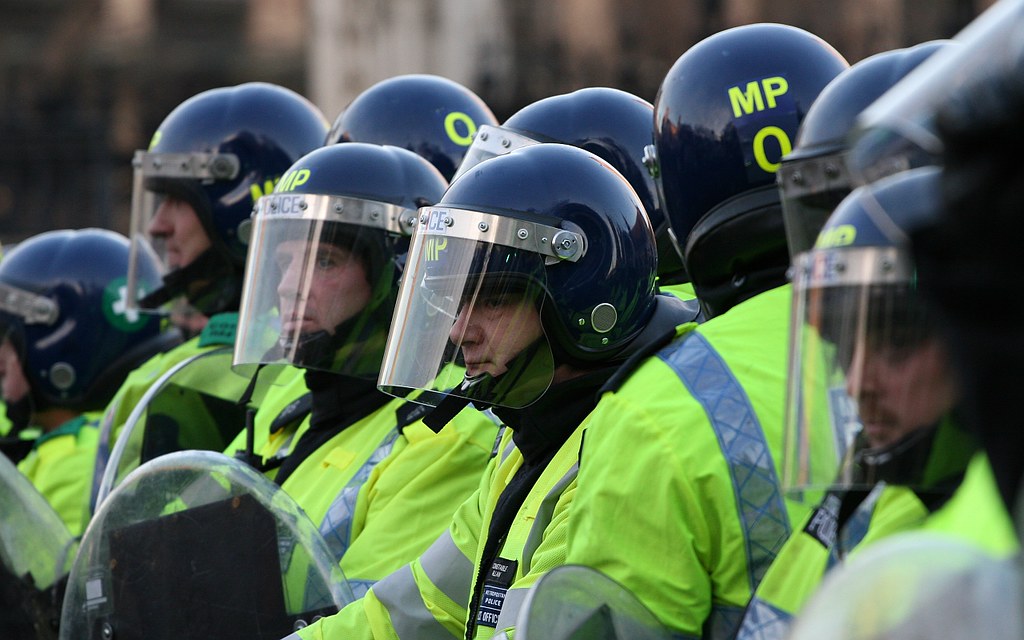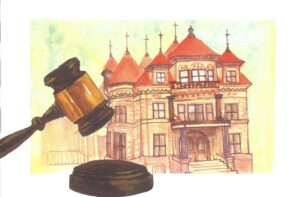Since the death of George Floyd, a Black man from Minneapolis who was murdered by police officer Derek Chauvin in May, protests demanding justice and equality for Black and Indigenous people of color have sprouted around the world. One of the most significant outcomes of the recent protests in North America has been increasing support of calls to defund the police, and to instead invest that money in community services like mental healthcare and public housing. Despite these seemingly straightforward demands and mounting support, only a few cities in the U.S. have actually made concrete plans to reduce funding (or disband entirely) their police departments. Seeing cities reluctant to budge on their police funding is puzzling, given police departments’ huge budgets, even in Canada.
However, understanding how police departments — and more specifically, police labour unions — assert influence over city governments brings to light just how difficult it is to institute these crucial changes. Police unions disguise themselves as having the best interest of the public and as keepers of community wellbeing, all while depriving other crucial services of funding and protecting “bad cops” from accountability.
…police unions largely protect their own interests without upholding social justice, all while preventing police accountability and disrupting community ties.
Unlike other unions, police unions largely protect their own interests without upholding social justice, all while preventing police accountability and disrupting community ties. Police unions protect their members by safeguarding investigation, discipline, and dismissal. In some cities, labour contracts protect officers by expunging their disciplinary records or keeping them confidential, allowing them to retain their jobs or be rehired by another police department regardless of misconduct. When a police officer is fired, they may be able to retain their jobs through arbitration with a superior. A 2013 report showed that 90 percent of officers fired from the Philadelphia Police Department eventually got their jobs back, mostly with full benefits. This was true even in clear-cut cases of wrongdoing, like those involving shoplifting or sexual misconduct.
These same issues exist among Canadian police departments as well. In Canada, police officers are entitled to indemnification, which requires police departments to cover their legal fees if they are charged with a crime (except in the few cases in which they are convicted). When legal proceedings are taking place against a cop, officers still receive their paychecks and cannot be disciplined or fired until after the legal proceedings are completed. Many legal contracts between police departments and Canadian city governments contain clauses that give police officers flexibility when it comes to their questionings and access to information about individuals who will be providing evidence before the court. Some clauses have even protected officers by requiring their consent before photos or footage from misconduct incidents are released to the public.
When the candidates police unions support are elected, they are often overly deferential when it comes to negotiating contracts with police departments.
Police unions are also controversial for being dominated by white, conservative leaders who are hostile to criticism or reforms. In Minneapolis, the major police union is headed by Bob Kroll, who is notorious for blocking police reforms and criticizing the Black Lives Matter movement. Leaders of the Police Benevolent Association (PBA), the largest police union in New York City, have a long history of bullying any critic of the police, including every recent New York mayor. These leaders often blame minorities and social justice movements as well. John Cassese, the former president of the PBA, expressed his racist frustrations of police departments “giving in to minority groups, with their whims and their grips and shouting.”
Bullying elected officials is just one way police unions assert and exploit their political power. Police unions can strongly influence city elections by supporting or condemning candidates. When the candidates police unions support are elected, they are often overly deferential when it comes to negotiating contracts with police departments. Consequently, police unions are given even more power to influence city governments and block reforms.
As long as the police are seen as the driving force of safety, police unions will continue to have leverage over labour contracts and city funding.
Police unions have leverage over city governments because the threat of a work slowdown (a pressure tactic for winning more flexibility in collective bargaining) is especially daunting, since police are seen as essential to public safety. This leverage is perpetuated by the image of the police as benevolent “heroes” of the communities they patrol, an identity that is strongly upheld by police unions. As long as the police are seen as the driving force of safety, police unions will continue to have leverage over labour contracts and city funding.
But, instead of protecting public safety, police unions may have the opposite effect. One study found that when Florida sheriff’s deputies secured the right to collectively bargain (i.e., unionized), violent incidents increased by 45 percent. By protecting “bad” cops — like those murdering innocent civilians — police unions disrupt the necessary task of building trust between police departments and the communities they patrol.
Police unions also give a bad name to other forms of unions, who show a more visible commitment to social justice. As a result, there is an increasing rift between police unions and the broader labour movement, as well as calls to kick police unions out of the labour movement entirely. The largest labour federation in the U.S., the AFL-CIO, has faced ongoing pressure to remove the International Union of Police Associations (IUPA) from their organization. However, excluding police unions is more complicated than it seems. For one, not all police departments in the U.S. are unionized, therefore disempowering the police may require more than just disempowering police unions. Additionally, the IUPA represents some emergency medical responders and corrections officers, which means these workers may also lose their job security if the IUPA is taken out of the AFL-CIO.
Disempowering and defunding the police is not a lost cause. By putting pressure on city governments to shrink police budgets and negotiate more rigid labour contracts (through protests, public unrest, and elections), we can reallocate more funding to preventative criminal measures (like accessibility to housing and healthcare resources), rather than punitive measures (like policing). This has already happened in major cities like Minneapolis, where city council members vowed to disband the police following major protests. A total restructuring of our policing system first and foremost requires reshaping the public image of the police as not the primary source of safety in our communities.






